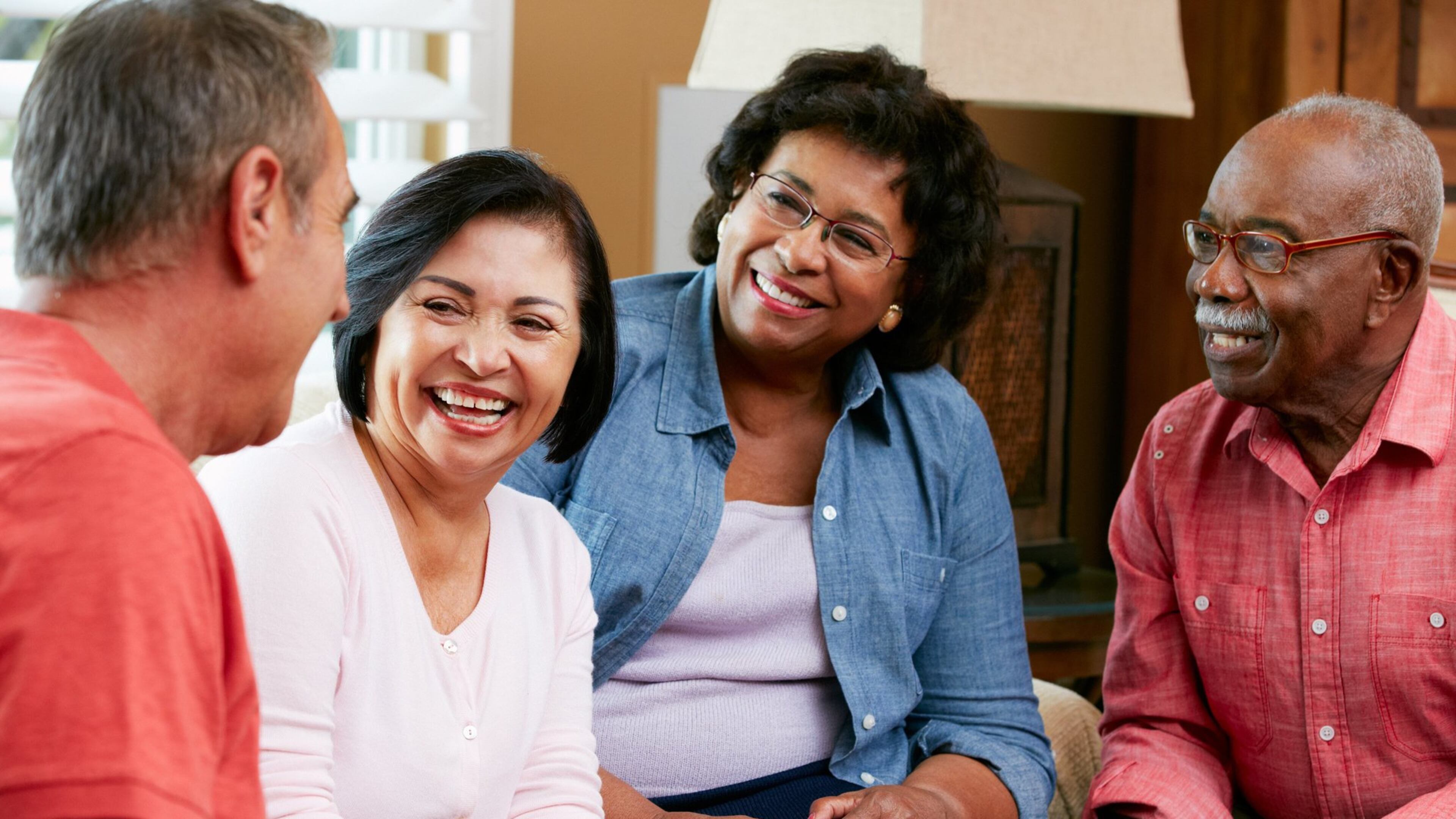Socialize to keep your brain sharp

As they get older, many folks start withdrawing from in-person socializing. They withdraw and start surfing the net or watching more television; going outside less and less as they age. Sitting most of the day with little or no human contact is not only bad for the body, but it’s also terrible for the brain as well.
If your only contact with others is via a device, you will miss out on keeping your brain and senses sharp. There is a lot missed when your only contact is virtual. Even Skyping isn’t the same.
When you’re actually sitting or standing next to other humans, you see the almost subconscious flickers of emotions on their faces that appear for less than a quarter of a second. You sense their ‘aura,’ which you may like or dislike or feel neutral about. None of this comes over as well on Skype, or even during a phone conversation, and it doesn’t come over at all when texting.
That’s why socializing in person is so important. In person, there’s also a human-to-human type of bonding based on odor. All humans have a personal odor, just like other animals. Thoroughbred horses smell differently from field-horses, and each of those will also have a different personal scent.
The human nose is an amazing thing. It can sense many different odors of which we humans are not consciously aware, but which help us to survive. However, a dog’s world is much richer with odors. Note the bloodhound, which can follow the trail of a single person and is used by law enforcement to track a wanted person, even though that person may not have passed that way recently. Humans have about six million odor receptors in their noses. Dogs have about 300 million, which is one reason why they sniff each other.
When we keep company with other humans, it helps our brain grow because our senses — sight, hearing, taste, touch and smell, each have receptors that send collected information to the brain. The brain is like a muscle; use it or lose it. As the brain gathers data from the senses, it ‘learns’ how to perceive more accurately. This doesn’t happen very much while watching television or surfing the internet.
It’s easy to spot those 55+ who have frequent human contact, as opposed to those who have little of it. Someone who hangs out with other humans, either as a member of a club, in a bar, or even a senior center; will know how to converse and still stay aware of conversations going on around them. Their social skills will usually be fairly sharp. While that doesn’t mean those skills are always congenial, it does indicate that their brain works more quickly than someone who has little social contact.
Interacting vocally with other people also helps speed up word recall, because you’re not in the world alone with your own thoughts. You have to respond to conversational cues with others. Thus, your brain gets more data by socializing, which helps keep the brain from slowing down as you get older. That’s something we all certainly want as we age.
———
Wina Sturgeon is an active 55+ based in Salt Lake City, who offers news on the science of anti-aging and staying youthful at: adventuresportsweekly.com. She skates, bikes and lifts weights to stay in shape.

